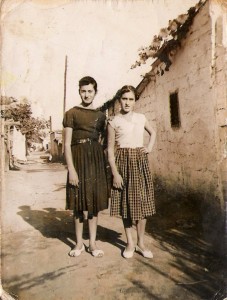Check also his personal webpage
Stefano Portelli (Rome, 1976), independent researcher attached to the Institut Català d’Antropologia, founding member of the Research group of Perifèries Urbanes, administrator of the website https://periferiesurbanes.org, and member of the multidisciplinary collective of anthropologists, architects and town planners Repensar Bonpastor. He graduated in Cultural Anthropology in 2001 from the University of Rome “La Sapienza” with a thesis on the contradictions of international development cooperation based on field work in the periphery of Managua (Nicaragua), valued with the highest note summa cum laude. In Barcelona, it dealt with the social impact of urban transformations and the interaction between collective memory and struggles for the territory, promoting projects subsidised by the ICA and the Memorial Democràtic de Catalunya. Mentrestant treballava com a educador social amb infants i menors no acompanyats, interessant-se en les ideologies del control i en l’autonomia dels nens en l’espai públic.
Starting in 2004 he began field work in the neighborhood of cheap houses of the Bon Pastor, which was being demolished. In collaboration with an association of local residents, and with a coordinating team by Professor Manuel Delgado, the research focused on past and present forms of opposition to the planning and impact of the reconfiguration of the space on the everyday and perceptions of the inhabitants, with special interest in the dynamics of immigration and exclusion, on the techniques of conflict resolution, and the autonomy of children. In 2009 this work was subsidised by l’Inventari del Patrimoni Etnològic de Catalunya, and the resulting monograph “La ciutat horitzontal: lluita social i memòria col·lectiva a les cases barates de Barcelona”, was published in 2015 in Catalan and in Spanish.
In 2007-2008 I attended the training “Ethnopsychiatrie des nouveaux désordres psychosociaux” at the Georges Dévereux Centre of the University of Paris VIII, focusing since then on ethnotechnics for conflict management and psychological problems, in particular the practices of adorcism linked to Sufi brotherhoods: He resided in Larache (Marrecos) during 2009-2010, and is currently investigating the adaptation of these techniques to the context of the diaspora in Europe, and analysing the applications of space anthropology in social and therapeutic intervention.
Publications (check also his personal webpage):
Activist*scholar collaborations in times of crisis, and beyond: Reflections on ‘Urban Activism: Staking Claims in the 21st Century City’
From the Horizontal to the Vertical
Pietro Saitta, Prendere le case
Eviction and displacement from the neighbourhood of Douar Wasti in Casablanca, Morocco
“The Cry of the Excavator. Notes on the social impact of urban renewall”
La ciudad horizontal. Urbanismo y resistencia en un barrio de casas baratas de Barcelona
“The casas baratas of Bon Pastor: a worker’s reservoir on the edges of Barcelona”.
“Sul mito della partecipazione cittadina a Barcellona: dall’urbanismo franchista al ‘modello’ democratico”
“Repensar Bonpastor: una intervención multidisciplinaria independiente en un barrio afectado por la transformación urbanística”
…

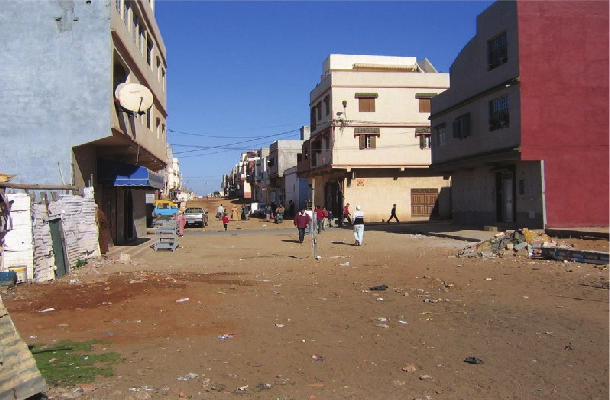

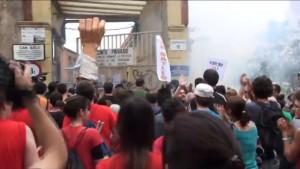
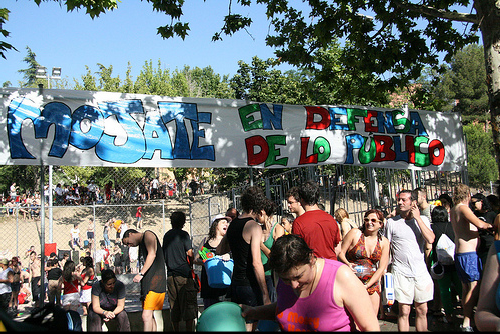 2011 will be the 30th year in which, in the outskirts of Madrid, and despite the ban of the City Council, the Naval Battle of Vallekas will take place: a popular and politically engaged fiesta that celebrates the independence of the neighborhood and its the proclamation of Vallecas as a seaport. Anthropologist Elizabeth Lorenzi, got involved in the neighborhood since 1998, and recently published an
2011 will be the 30th year in which, in the outskirts of Madrid, and despite the ban of the City Council, the Naval Battle of Vallekas will take place: a popular and politically engaged fiesta that celebrates the independence of the neighborhood and its the proclamation of Vallecas as a seaport. Anthropologist Elizabeth Lorenzi, got involved in the neighborhood since 1998, and recently published an  We always liked this photo. In 2004, who is now the new mayor of Barcelona visited Bon Pastor neighborhood: this photo was taken in the casa barata of some friends (and informants) of ours. What is really interesting here is the presence, we might call it, of the different kind of people portrayed. The man on the right, the grandfather, the girl, look solid, real, strong. The politician in the middle seems like he was cut out and sticked on a scenario that doesn't fit him: it makes him feel unconfortable, like he didn't know how to behave. Some places make the power feel unconfortable; and the power - rightwing or leftwing, it's the same - tries by all means to wipe them out.
We always liked this photo. In 2004, who is now the new mayor of Barcelona visited Bon Pastor neighborhood: this photo was taken in the casa barata of some friends (and informants) of ours. What is really interesting here is the presence, we might call it, of the different kind of people portrayed. The man on the right, the grandfather, the girl, look solid, real, strong. The politician in the middle seems like he was cut out and sticked on a scenario that doesn't fit him: it makes him feel unconfortable, like he didn't know how to behave. Some places make the power feel unconfortable; and the power - rightwing or leftwing, it's the same - tries by all means to wipe them out. 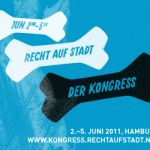
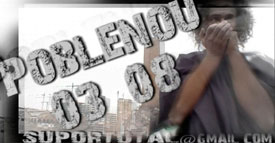
 [/caption]
Maybe anthropology is slowly dropping its positivist burden and stepping towards the contemporary world. In Low and Merry's opening article of Current Anthropology's recent supplement
[/caption]
Maybe anthropology is slowly dropping its positivist burden and stepping towards the contemporary world. In Low and Merry's opening article of Current Anthropology's recent supplement 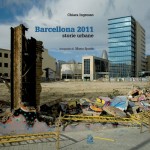 These two freshly published books by Chiara Ingrosso provide new insights on Barcelona's urban and architectural history:
These two freshly published books by Chiara Ingrosso provide new insights on Barcelona's urban and architectural history:  [/caption]
Zoning means that some parts of the city, for real estate or urbanistic reasons, are devoted to certain groups of population: if there are neighborhoods where immigrants live, it's obvious that the schools of these neighborhoods have to cope with much more children born from foreigners. Such is the situation in Torpignattara, in the east periphery of Rome: a primary school is undergoing a series of public debates abounding in words like
[/caption]
Zoning means that some parts of the city, for real estate or urbanistic reasons, are devoted to certain groups of population: if there are neighborhoods where immigrants live, it's obvious that the schools of these neighborhoods have to cope with much more children born from foreigners. Such is the situation in Torpignattara, in the east periphery of Rome: a primary school is undergoing a series of public debates abounding in words like 



